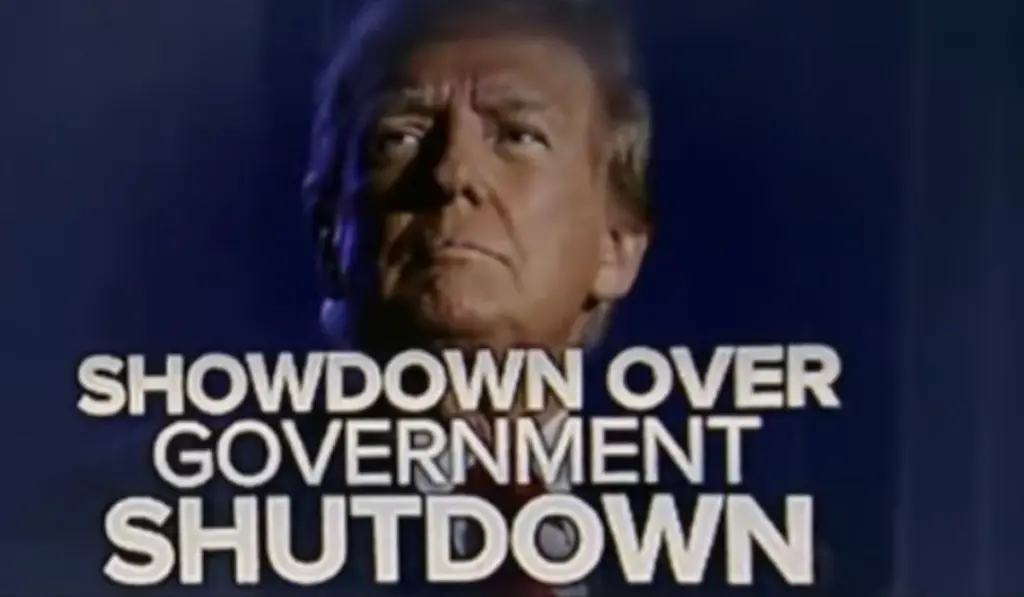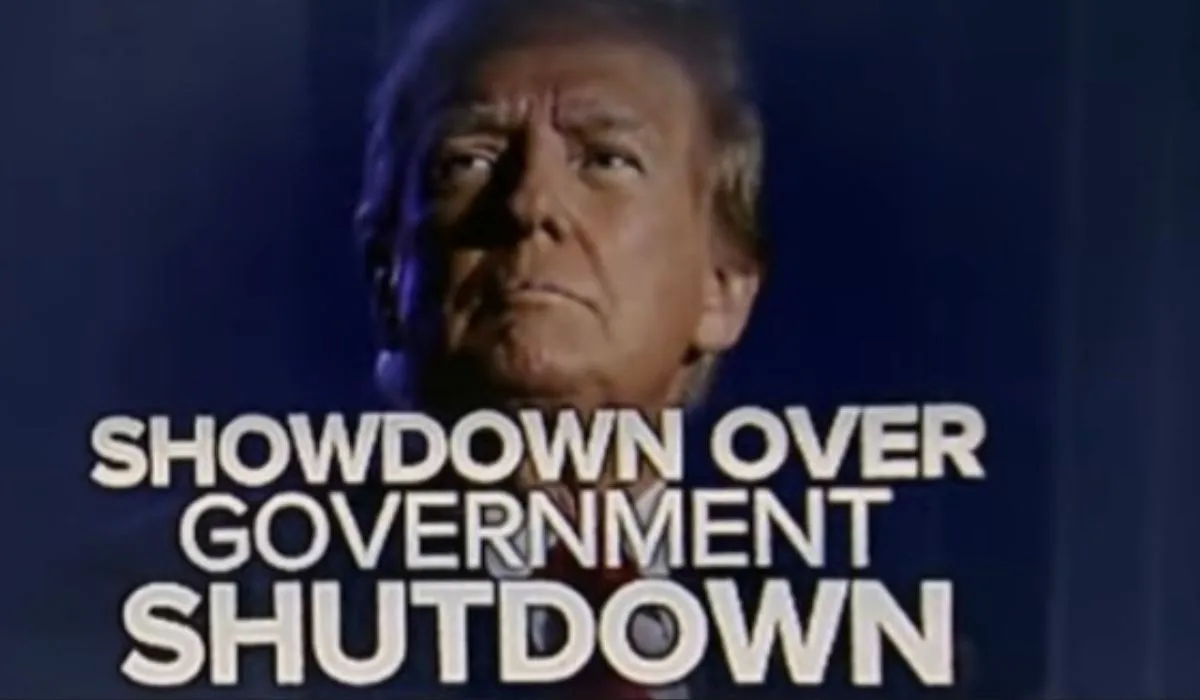The looming threat of a government shutdown is raising concerns across the United States as Congress struggles to reach an agreement on funding.
With the deadline fast approaching, House Republicans recently rejected a Trump-backed spending bill, deepening the uncertainty about the government’s future.
This article takes a closer look at the situation, the potential impacts of a shutdown, and what it could mean for federal workers and American citizens.
Table of Contents
What is a Government Shutdown?
A government shutdown occurs when Congress fails to pass a budget or a continuing resolution (CR) to fund the federal government.
This means that non-essential government functions cease, and federal employees are either furloughed or asked to work without pay.
Essential services, like national security and law enforcement, typically continue, but many government offices and services are severely limited or completely shut down.
As of December 2024, the U.S. government faces the possibility of a shutdown if lawmakers cannot agree on a spending bill.
The immediate concern is the failure to pass a spending bill that would prevent the federal government shutdown.
House Speaker Mike Johnson and key figures in Congress are working to secure a deal, but political divisions are complicating the process.
The Impact of a Government Shutdown
If the government shuts down, the effects are widespread.
Furloughs will affect hundreds of thousands of federal workers, who could face temporary unemployment or forced leave without pay.
Agencies like the IRS, the National Park Service, and the Centers for Disease Control and Prevention (CDC) may see disruptions in services, impacting citizens’ day-to-day lives.
Additionally, the debt ceiling is a major issue at play in the ongoing budget negotiations.
If Congress fails to raise the debt ceiling, the U.S. could default on its obligations, potentially triggering a financial crisis.
The debt ceiling sets a cap on how much money the federal government can borrow to meet its obligations.
Failure to address this limit could have far-reaching consequences for the economy, including the possibility of reduced government spending and delayed payments.
The Role of Mike Johnson and the House Vote
House Speaker Mike Johnson is under intense pressure to find a solution to avoid the looming shutdown.
The recent House vote on the continuing resolution revealed deep divisions within the Republican Party, with hard-right members rejecting a bill supported by former President Donald Trump.
While Johnson, a conservative ally of Trump, has been working on the issue, his efforts are being thwarted by internal disagreements among his party members.
The House vote on continuing resolution failed to secure enough support, further increasing the likelihood of a shutdown 2024.
As Congress approaches the December 2024 deadline, the pressure is mounting.
Will Congress pass a CR bill in time to avoid a government shutdown? The answer remains unclear, with both political parties offering differing solutions.
While Democrats push for more comprehensive funding measures, Republicans are advocating for spending cuts and fiscal reforms.
What Happens if the Government Shuts Down?

If a government shutdown happens, millions of federal workers could face significant uncertainty.
Those deemed essential, like military personnel and first responders, will continue to work, but many other workers will be furloughed. The Capitol and other federal offices will be impacted, with many services unavailable until funding is restored.
Federal contractors and services dependent on government funding could also feel the pinch.
Agencies tasked with enforcing regulations and providing public services may struggle to function without the necessary budget.
The inability to process government paperwork, permits, or applications could delay everything from passport renewals to business licenses.
Shutdown 2024: Why is the Government Shutting Down?
The primary reason behind the potential government shutdown is disagreement over the spending bill and the funding of key government programs.
Lawmakers are at an impasse over how to allocate resources, with Republicans pushing for cuts to social programs and Democrats seeking increased funding for healthcare and defense.
The looming government shutdown 2024 is the latest in a series of fiscal crises that have plagued Congress in recent years.
Lawmakers often resort to passing short-term continuing resolutions (CRs) to keep the government running temporarily, but these temporary measures create an unstable environment and contribute to uncertainty.
The Continuing Resolution and the Road Ahead
A continuing resolution (CR) is a temporary funding measure used to keep the government running while Congress works on a more comprehensive budget.
However, as seen in the latest vote, the House vote on continuing resolution has failed to gain traction.
Without an agreement on the CR bill, the U.S. government is on the brink of a shutdown.
The stakes are high, with the economy and national security at risk. For now, all eyes are on the House of Representatives and Senate, hoping for a breakthrough before the deadline passes.
But the question remains: Is the government going to shut down? Will lawmakers manage to resolve their differences in time?
What Does a Government Shutdown Mean for You?
For ordinary citizens, the effects of a government shutdown can be felt in a number of ways.
Federal workers face delayed paychecks or potential furloughs, and services such as national parks, museums, and passport processing may be temporarily suspended.
If the shutdown extends into the new year, additional impacts, such as delayed tax refunds or halted social programs, could further strain citizens.
Additionally, the Hill and NPR News have highlighted the ongoing debate about the impact of a government shutdown on federal pay raises for 2025.
With budget talks still unresolved, it remains uncertain whether these raises will be delayed or affected.
The Future of the Shutdown: What Happens Next?
As we move into 2025, the effects of the shutdown 2024 will linger.
The upcoming months will be crucial as Congress works to pass new budget proposals, raise the debt ceiling, and find long-term solutions to prevent future shutdowns.
The spending bill discussions will continue to dominate the political landscape, with major decisions to be made that could affect everything from federal workers to public services.
With so much at stake, it’s clear that the government shutdown is far from over.
Lawmakers in Washington are feeling the heat, and citizens are waiting to see whether they can come together to avert a crisis.
In conclusion, government shutdowns are more than just a political inconvenience.
They disrupt essential services, delay payments, and can cause financial uncertainty for millions.
As we watch the latest developments surrounding the government shutdown 2024, the hope is that Congress will find a way to avoid a prolonged shutdown and provide stability for federal workers and the American public.
Only time will tell if this crisis will be averted or if the U.S. will face another round of uncertainty due to a shutdown.
Related:









